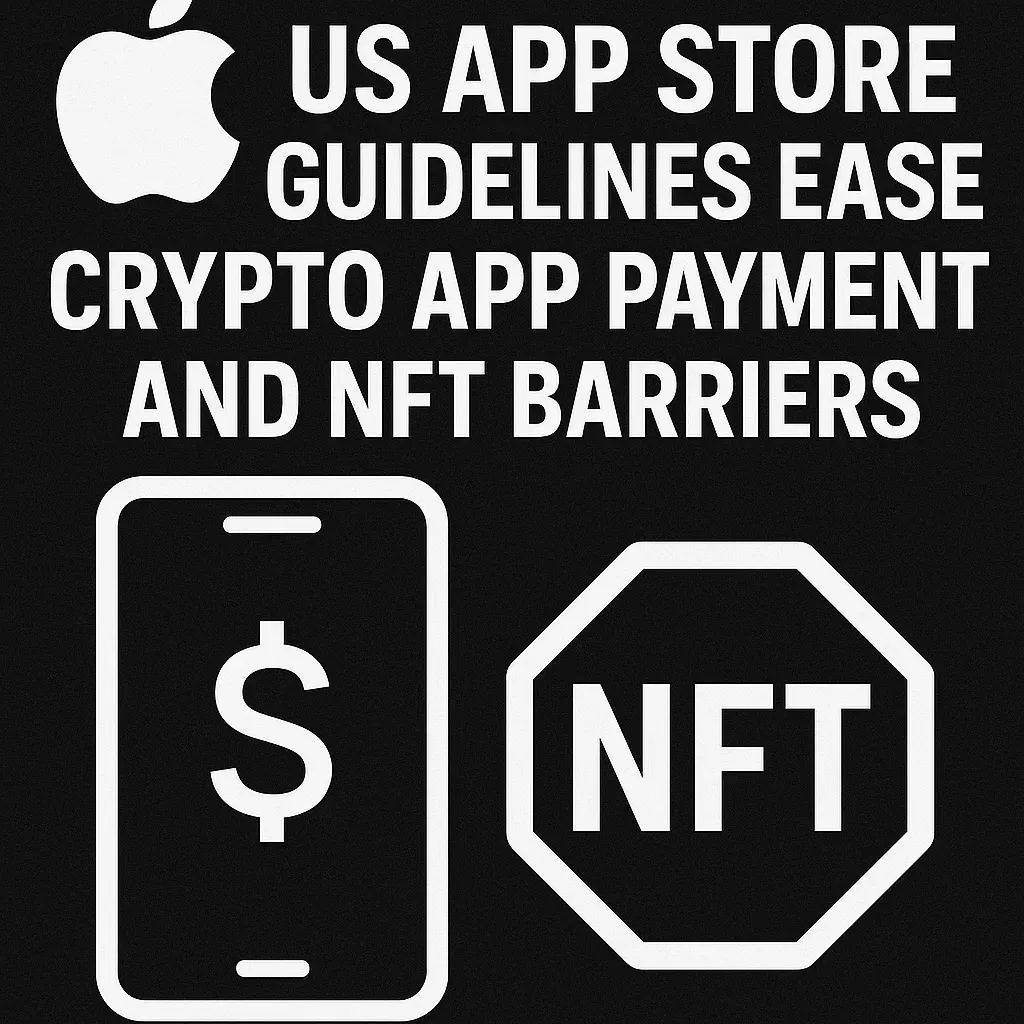
Apple Loosens App Store Rules for Crypto, NFTs & DeFi
Apple’s Revised App Store Rules Ease Crypto App and NFT Restrictions
In a significant policy reversal, Apple has updated its US App Store guidelines, granting apps the ability to link to external payment systems. The move is being hailed by the crypto community as a breakthrough for NFT marketplaces, wallet apps, and DeFi platforms, who have long struggled under Apple’s 30% commission structure and strict in-app payment restrictions.
The rule change is expected to boost innovation in mobile crypto experiences, enabling developers to offer cheaper, more seamless access to blockchain-based services directly through iOS apps.
What Has Changed?
Under the revised guidelines, apps may now include external links to payment systems, provided they also include an in-app warning that users are leaving Apple’s ecosystem. This change is a response to ongoing legal pressure, most notably from the Epic Games v. Apple lawsuit, which spotlighted the tech giant’s tight control over app monetisation.
Previously, crypto apps, particularly NFT platforms like OpenSea or Magic Eden, were forced to conduct transactions inside Apple’s system, triggering fees that often made crypto micropayments impractical.
Now, with direct links to third-party payment processors allowed, developers can bypass Apple’s fees, offering more competitive pricing and a better user experience.
Impact on NFTs and Wallets
The biggest winners are likely to be NFT apps, which can now facilitate token purchases and listings without being taxed by Apple’s ecosystem. Until now, Apple’s policies limited NFTs to "view-only" utilities in many apps unless sales occurred within the Apple payment framework.
Crypto wallets and DeFi dashboards also stand to benefit. Apps like MetaMask and Trust Wallet will be able to integrate fiat on-ramps and staking features with fewer restrictions while still complying with user security warnings required by Apple.
A Shift Toward Web3-Friendly Mobile UX
The crypto industry has long complained that Apple’s walled-garden approach stifles innovation. Critics argued that Apple’s 30% cut was not only excessive but also incompatible with blockchain principles of decentralisation and peer-to-peer interaction.
“This is a win for builders and users,” said Lana Vukovic, head of mobile at a leading DeFi protocol. “Developers can finally integrate meaningful Web3 functionality without fear of being delisted or blocked.”
However, some caution that the change still comes with Apple-imposed disclaimers, and that global expansion of the rule remains uncertain. The update currently applies only to U.S. App Store listings.
What’s Next?
Industry watchers say this could be the first step in a broader re-evaluation of app store dynamics across big tech. With Google Play and Samsung’s Galaxy Store also experimenting with crypto-friendly policies, Apple’s new stance may help cement mobile’s role in the mass adoption of blockchain apps.
Stay on top of any cryptocurrency news by following us on X @ouinex